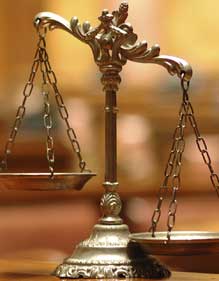|
Getting your Trinity Audio player ready...
|
 Dear Corruption Watch,
Dear Corruption Watch,
Glynnis Breytenbach was recently found not guilty on all the disciplinary counts brought against her by the NPA.One of the allegations was that she favoured mining company, Sishen Iron Ore, in the criminal case against Imperial Crown Trading and that she failed to follow up on the counter-allegations made by Imperial against Sishen. She claims that she was suspended because she was pursuing charges against Richard Mdluli.How should prosecutors decide which cases to pursue? How do we know when there has been improper interference or corruption?
Questioning
Dear Questioning,
The implications of the Breytenbach case are extremely concerning and go to the heart of prosecutorial independence. The fact that the chairman of the disciplinary hearing found that Breytenbach acted properly and ethically in carrying out her duties in the ICT and Sishen cases gives rise to the inference that she has indeed been dismissed for her involvement in politically unpopular prosecutions.
Prosecutorial discretion and independence is an important part of any criminal justice system. The Constitution and our national laws empower prosecutors to institute and discontinue criminal proceedings. This means that after the SAPS had conducted their investigation, it is prosecutors who make the decision whether or not to pursue a criminal case against someone. There are many factors that prosecutors must take into consideration including the evidence collected during the police investigation, the integrity and weight of the evidence, and the public interest in the prosecution. This is a huge responsibility. An arrest and subsequent trial has grave implications for the right to liberty as well as a person’s job, family life and finances. The state must only pursue a prosecution where it has sufficient evidence to form a case.
The exercise of prosecutorial discretion is often controversial. Many cases are borderline, and there is often space for interference or corruption. This interference can come from other organs of state or from the people against whom criminal proceedings might be instituted. In the Breytenbach case, it appears that some interference came from within the NPA itself.
On the one end of the spectrum, in the face of very strong evidence, prosecutors may decide not to pursue a prosecution against someone because they received a bribe or because of that person’s political connections. On the other end, prosecutors may aggressively pursue a prosecution in order to serve a political vendetta, even where there is no real case. Both situations have serious consequences for our criminal justice system.
The prosecutor must apply his or her mind properly and independently to every case. Legislation requires that prosecutors serve impartially. They must exercise their powers in good faith and without fear, favour or prejudice and subject only to the Constitution and the law. Every prosecutor is obliged to make an oath to this affect upon taking office. The NPA has a Code of Ethics to assist its employees in ethical conduct. NPA employees must avoid conflicts of interests which may arise from outside business interests or receiving gifts.
We should be gravely concerned if it is true that officials in the NPA targeted Breytenbach because of her decision to prosecute Richard Mdluli. Freedom Under Law has applied to the High Court for an order to have the investigations and prosecution of Mdluli reinstated. The Breytenbach case and the Mdluli prosecution highlight the importance of keeping a careful watch on the way in which prosecutors and the NPA exercise their discretion to pursue criminal charges. The criminal justice system should never be used for political ends or to service the interests of the corrupt few.
- This letter first appeared in the Sunday Times Business Times on 16 June



